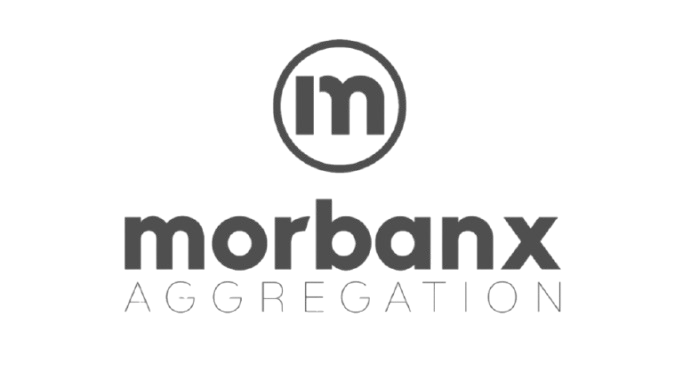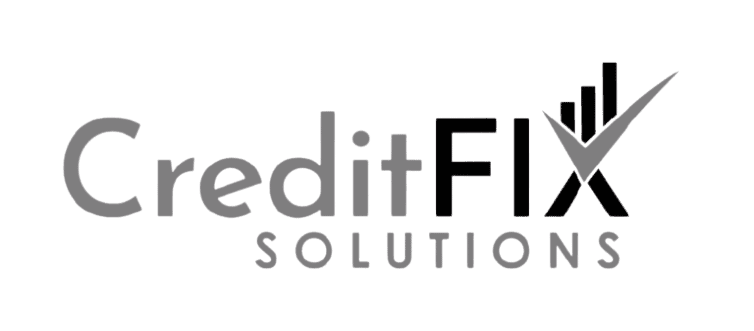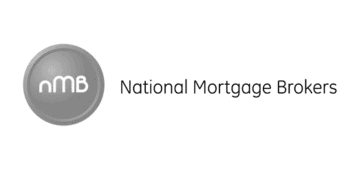FNS50322 Diploma of Finance and Mortgage Broking Management
Develop skills to better manage your business
Some industry participants recognise the Diploma of Finance and Mortgage Broking Management as the minimum qualification required for new Finance and Mortgage Brokers.
Use Code: SUMMER10 for a 10% discount
*Offer valid until 11:59 PM AEDT, 27 February 2026. This promotion can’t be combined with other discounts and does not apply to RPL consultation sessions.

This course covers important topics including the lending process, regulation, compliance, and relationship building. It builds the vital skills needed to learn more about building a successful business and brokering complex loans.
Industry Associations and Aggregators may accept a minimum Certificate IV in Finance and Mortgage Broking qualification but may require evidence of commencement of a Diploma of Finance and Mortgage Broking Management upgrade.
If you have already completed a Certificate IV in Finance and Mortgage Broking CLICK HERE to be re-directed to a Diploma Upgrade course.
The FNS50322 Diploma of Finance and Mortgage Broking Management – Accountants & Financial Planners pathway has been tailored for qualified Accountants or Financial Planners who have been in the financial services industry for at least two years. For more information, CLICK HERE.
Course Information
Course Modules
Compliance
This module introduces the finance industry and the role of a Finance Broker. Learn about the various participants, sectors, and roles within the industry, including the legislation and regulations that impact the role of a licensed finance broker. Understand how to operate compliantly using available systems and supports.
Ethics
Acting ethically is crucial for building trust with clients and operating compliantly. Ethics extends beyond responsible lending; it involves understanding ethical biases, cognitive biases, and psychological barriers.
Professional Relationships
Ongoing business relationships are vital for sustaining a successful broking business. Discover how to engage and build relationships with clients, industry participants, and third-party referrers.
Personal and Professional Development
Managing professional development activities, prioritising and planning daily tasks and goals are vital to ensuring continuous growth and efficiency in your professional life. Learn how to support a team with their work priorities and professional development.
Loan Application
Develop knowledge and understanding of different loan types and structures, including lender appetite and policy. This module covers the basics of commencing the loan application journey with clients and managing the loan submission to post-settlement.
Complex Lending
Develop knowledge and understanding of more complex loan types and structures, as well as how to manage the loan application from first contact with a client through to post settlement of the loan application.
Risk
Risk management is a critical part of maintaining a compliant business – it is important to understand how to identify and manage potential risks before they occur, and the best strategies for dealing with them, should they occur.
Grow Your Business
Growing your business is all about planning! This module teaches how to plan ahead by considering target market clients, competitors, products and the actions for planning promotional activities in line with growth targets.
Units of Competency
- FNSFMK515 Comply with financial services regulation and industry codes of practice
- FNSCMP501 Comply with financial services legislation
- FNSCUS511 Develop and maintain professional relationships in financial services industry
- FNSFMB411 Prepare loan applications on behalf of clients
- FNSFMB412 Identify client needs and present broking options
- FNSINC412 Apply and maintain knowledge of financial products and services
- FNSFMB512 Identify and develop credit options for clients with special financial circumstances
- FNSFMB513 Present credit options to clients with special financial circumstances
- FNSFMB514 Implement complex loan structures
- FNSINC411 Conduct work according to professional practices in the financial services industry
- FNSINC514 Apply ethical frameworks and principles to make and act upon decisions
- BSBPEF501 Manage personal and professional development
- FNSPRM613 Grow financial practices
- FNSRSK512 Assess risks
- FNSRSK511 Undertake risk identification
Please note that the full qualification includes the elective FNSPRM613.
The RPL pathway, however, assesses the elective FNSCUS403.
Course Duration
- Enrolments are valid for a period of twelve (12) months. RPL enrolments are valid for a period of seven (7) months. Course extensions of up to three (3) months may be granted upon request, with an applicable extension fee. Please refer to our terms and conditions for more information.
While we provide twelve (12) months to complete the full course, individuals with an industry background or an understanding of the broking process may finish in a shorter time frame. This largely depends on personal capacity and available time. Those without an industry background but with more availability to study may also be able to complete the course within a shorter time frame.
Delivery Options
Online (remote self-paced)
Distance learning: online self-paced learning is for those students who have the capacity and ability to study with minimal guidance. If you are new to industry and/or study, we strongly suggest completing your course via virtual classroom.
Virtual class (blended learning – consists of part virtual classroom and remote self-paced learning)
Attend a virtual class session from home or office, delivered via Zoom. Our highly experienced trainers guide participants through each module, using ‘true to life” client scenarios. Assessments are expected to be completed post-class. However, our trainer will cover the requirements during class.
Virtual class schedule:
- Sessions delivered over 5 days – 3 days in week 1, 2 days in week 2. (Attend consecutive weeks OR consecutive months – Flexible training options available)
- 9:30 am – 4 pm Eastern Standard Time
- Zoom links accessible from the Learner Portal
Return for free! Our virtual class option allows participants to re-attend any session during their enrolment period.
Recognition of Prior Learning and Credit Transfer
Recognition of Prior Learning
If you have previous industry experience or conducted prior training, you may be eligible for Recognition of Prior Learning. Please refer to the RPL information page to determine the eligibility criteria.
If applying for RPL, you will need to submit a completed pre-eligibility form where prompted.
Credit Transfer
If you have previous industry completed or partially completed training with another education institute, you may be eligible for credit transfer. Please refer to the credit transfer page for more information.
CPD Hours and Post Nominal
Continued professional development hours are not based on how long it takes to complete your course.
Full Diploma
- Online/Virtual: 30 CPD hours
- RPL: 12 CPD hours
Diploma Upgrade from FNS40810-15:
- Online/Virtual: 22 CPD hours
- RPL: 10 CPD hours
Diploma Upgrade from FNS40820-21:
- Online/Virtual: 16 CPD hours
- RPL: 10 CPD hours
Post Nominal – DipFMBM
Payment Options
Payment can be made with credit card via the online learner portal, once the enrolment is complete. Alternatively, payments are accepted via bank transfer, the invoice number must be entered as the reference. Access to material and assessments will be granted once funds have cleared in our account.
Pathways
The FNS50322 Diploma in Finance and Mortgage Broking Management is currently the highest qualification for Finance and Mortgage Broking. If you are seeking to broaden your business management skills, consider completing our BSB50120 Diploma of Business. Discounted course fees apply for existing AAMC Training members.
Student Support
Student support is available via the learner portal, email, and telephone.
Our Student Support and Resources page has information available including:
- Academic & technical support
- Assessment support sessions & virtual classes
- Learning‑difficulty assistance
- Wellbeing and counselling resources
- Equity and accessibility measures
- Inclusive and culturally sensitive support
- Financial transparency
- Reasonable adjustments
Applications From Students Under 18 Years
AAMC Training Group accepts applications for enrolments from students aged 16 or 17 in select circumstances. As we do not deliver VET in Schools programs, all applicants under 18 must meet additional requirements under the ASQA 2025 Standards for RTOs.
Before applying, please contact us to discuss eligibility and required documentation.
To be considered for enrolment, students must:
- Be resident of Victoria, New South Wales, or Queensland
- Be 16 or 17 years of age at the time of enrolment
- Be able to provide verified parental or guardian consent
- Have access to a suitable learning environment and have suitable support arrangements in place
- Meet all standard enrolment requirements for their chosen course.
About the Finance and Mortgage Broking Industry
What do Finance and/or Mortgage Brokers do?
In general, Finance and Mortgage Brokers may perform the following duties;
- Prospect for new clients and referral partners;
- Assist clients in obtaining loan or lease options that are ‘not unsuitable’ to meet their finance requirement/s by assessing their needs, eligibility and capacity to service the required debt;
- Research, present and negotiate suitable products based on the information presented to meet their clients’ requirements;
- Assist clients requiring further products and services by linking them to the required product or services provider, such as personal protection insurance or financial advice;
- Apply for the loan/lease facility with the chosen lender on behalf of the client, monitor the progress of the application through to settlement;
- Provide client after-care service to their clients;
- They may also start or own a business, which will involve the day-to-day tasks required to set up and manage the business.
When the client has selected a product that suits their lending requirements and goals, the broker will lodge the loan/lease application with the chosen lender with whom they will need to be accredited (often via their Aggregator/licensee). The broker’s role is to ensure that the loan/lease is managed through to settlement, maintaining contact with the client and ensuring the client is satisfied with the service provided. The broker may earn a commission from the lender and/or charge a fee for their service. The commission may be paid via their Aggregator (licensee), who may take an agreed % of this money and pass the remaining amount to the broker. For example, a mortgage loan commission is often made up of an upfront payment, which can vary between 0.5% and 0.7% of the loan amount and a trailing commission of between 0.15% to 0.25% of the loan amount (paid over the life of the loan) whilst the broker is still managing that loan for the client. Commissions may cease if the client refinances their loan without engaging the broker or they pay it out in full. Payments may vary between lenders, and clawback may apply when a client terminates the loan early, usually within the first 24 months.
A Finance broker’s potential earnings will depend on the size and number of loans they settle. Aggregator Partnership or Business Development Managers may assist new to industry brokers with strategies on how to achieve a desired level of income. However, like any business it is up to the individual to realise their own goals.
What is the difference between a Finance and Mortgage Broker
Mortgage Brokers generally assist clients in acquiring loans to purchase, build or refinance residential property for owner occupation or investment.
Finance Brokers is a broader term used by industry but can mean the broker’s main source of business is assisting clients to acquire loans and/or leases to purchase assets for business and personal use, such as equipment, motor vehicles, and business equity. They may also assist clients in acquiring home loan finance.
Becoming an accredited Finance Broker
The finance and mortgage broking industry is regulated by the Australian Securities and Investment Commission (ASIC). The Certificate IV in Finance and Mortgage Broking is the minimum requirement for business professionals who provide retail consumer credit advice (for consumer loans). They must become accredited under the National Consumer Credit Protection Act (NCCP) and hold a Credit Representative status (CR) under an Australian Licence Holder (ACL). Finance Brokers that do not offer consumer credit advice will not be required to hold an ACL or become an ACR of that licensee.
An Aggregator is a true business partner offering new to-industry brokers to start their journey with confidence. New-to-industry brokers must become licenced as a credit representative under the Aggregator’s credit licence. Aggregators provide business set-up guidance through an onboarding process. They also offer ongoing coaching, access to a range of lenders products via an accreditation process, loan lodgement and client management platform, broker commission payments and a compliance framework to ensure the finance broker operates compliantly. Other services include marketing, business planning and operational support, client acquisition strategies, networking events and professional development. Their fees vary from a monthly fee to a percentage of commission earned.
Industry associations advocate for the rights of those operating within the industry. They lobby the government to keep the industry fair and transparent for its members. Becoming a member of one or more industry associations is mandatory for many Aggregators. Membership provides benefits such as networking and professional development events, industry regulation updates, business support and professional development training.
Finance Brokers offering consumer credit advice may be required to be mentored for a minimum of 24 months. Mentors work closely with brokers to ensure they proactively learn all facets of the role whilst ‘on the job’. The industry requires them to teach and coach their broker mentees, attend client interviews, and review loan applications before submitting them to the chosen lender.
The AAMC Training team are more than happy to refer you to our industry partners for those who have yet to speak to someone in the industry.
For further regulatory information regarding the National Consumer Credit Protection Act (NCCP), visit the ASIC website link here: National Credit Code | ASIC.
Contact Us
- 03 9391 3643
- Int +61 39391 3643
- Suite 102, 139 Cardigan Street, Carlton VIC 3053
FNS50322 Diploma of Finance and Mortgage Broking Management
Use Code: SUMMER10 for a 10% discount
*Offer valid until 11:59 PM AEDT, 27 February 2026. This promotion can’t be combined
with other discounts and does not apply to RPL consultation sessions.
Please continue to the Recognition of Prior Learning page
to check your eligibility for RPL and apply.

Frequently Asked Questions
Do I need to complete a Certificate IV AND a Diploma?
No, you do not need to complete both the Certificate IV and the Diploma of Finance and Mortgage Broking. The Certificate IV (FNS40821) is generally the entry-level qualification required to begin working in the finance and mortgage broking industry.
While many of the units in the Certificate IV are also included in the Diploma, enrolling directly in the Diploma means you will only receive the Diploma qualification—not both certificates.
Is the Diploma more highly recognised than a Certificate IV?
Yes, the FNS50322 Diploma of Finance and Mortgage Broking Management is generally more highly recognised than the FNS40821 Certificate IV in Finance and Mortgage Broking. The Diploma may also be the minimum standard for many lenders, aggregators and industry associations.
Is the Diploma the highest industry qualification?
The FNS50322 Diploma in Finance and Mortgage Broking Management is currently the highest qualification for Finance and Mortgage Broking. If you are seeking to broaden your business management skills, consider completing our BSB50120 Diploma of Business.
Do I have to hold the Diploma to become a finance or mortgage broker?
A Certificate IV is the minimum requirement for those seeking a career in mortgage broking. If you are looking to become a finance broker specialising in non-consumer loans, you may not be required to complete a Certificate IV but it is a highly regarded qualification.
Do I need a Diploma if I am working for a finance or mortgage broker?
This would depend on your role of responsibilities. A certificate IV is highly regarded for anyone seeking to provide support services to mortgage and/or finance brokers and their clients, but may not be a mandatory requirement.
Is this course nationally recognised and accepted by industry associations?
AAMC Training Group is a wholly Australian owned Registered Training Organisation (RTO number 51428), operating nationally and internationally. This course is nationally recognised by the FBAA and MFAA.
What are CPD hours?
Continual Professional Development (CPD) provides each individual with a framework within which they must take responsibility for their own learning. A number of associations have CPD programs in place and the CPD has become a legal requirement in many sectors of the finance industry. Hours are awarded for each activity and these hours are set by the relevant associations or the regulatory bodies pertaining to the relevant profession.
Our Partners
AAMC Training Group is proud to be associated with the following organisations:


























